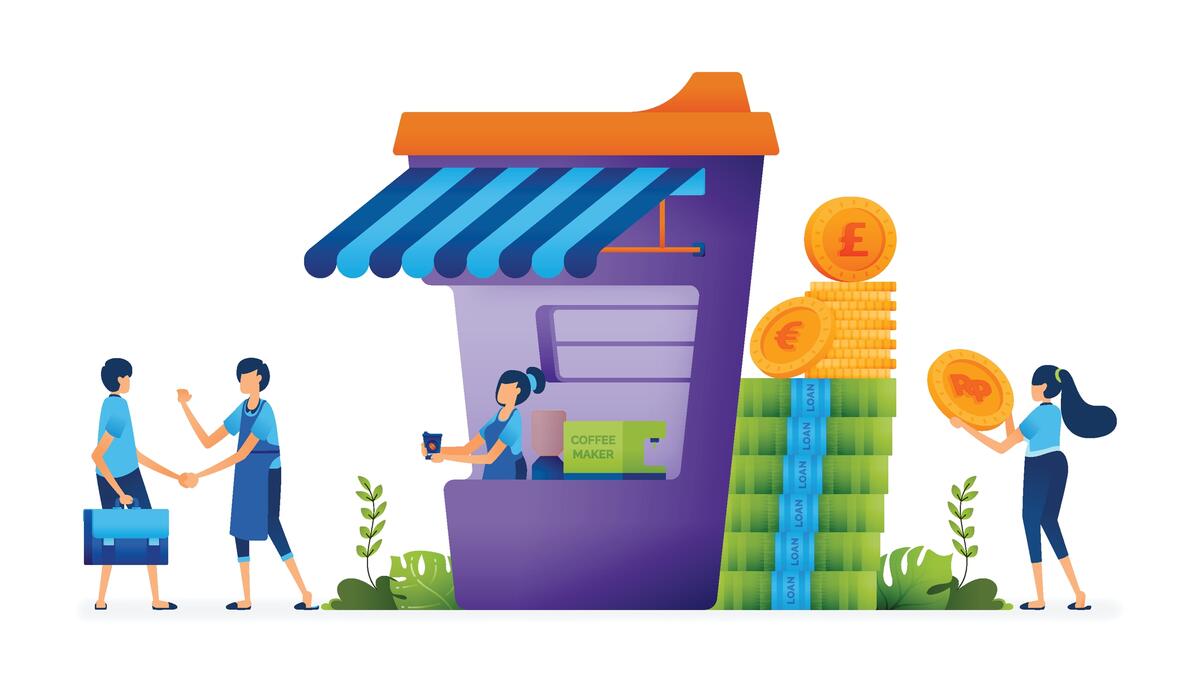Blog
How fintechs are providing financing opportunities to SMEs without formal credit profiles

Summary of SME Finance Virtual Marketplace – November Live Session.
The SME Finance Forum, since its inception in 2015, has been featuring innovative fintech, helping connect members to different technologies and partnership opportunities. Through our virtual SME marketplace, we offer a monthly pitch session. The SME virtual marketplace is a unique online match-making platform promoting partnership and collaboration among financial institutions, fintech companies, and DFI.
On November 9th, the SME Finance Forum Marketplace session gathered three fintechs, offering services ranging from payment processing and platform development to credit scoring and asset optimisation. Below, you will find a summary of each of our speaker’s presentations.
Credit scoring is a cumbersome task which requires a great amount of due diligence and information in order for lenders and banking institutions to feel secure in providing financing options, assured that they will see a return on their loans. However, with micro- and small- to medium-enterprises (MSMEs), given the scale of their operations, financing institutions do not figure the cost-benefit analysis sufficient to justify going through the processes of credit scoring and financing loans.
Moreover, MSMEs also face an additional hindrance to their business operations, as the obtention of loans or financing options is made more difficult by the fact that they lack a credit history or score. Many MSMEs have little to no banking history, which means that, even if the banks were to evaluate their eligibility for a loan, they would not qualify for they have not been able to generate a credit history by which to judge their past business and future earnings potential.
The three financial technology companies presenting today have found an underserved demographic, for whom they can create credit scores and support payment processes through advanced technological means in order to allow financing to become more accessible.
Pioneering MSME Credit Scores in Indonesia
AIForesee, represented by its Chief Executive Officer Christian Limawan, considers the traditional credit scoring system to be linear, static and one-dimensional – catering only to the large-scale operations and international entities for whom credit scores are clear-cut and straightforward. However, business of smaller size and consumer in low-income areas tend to be disproportionately credit invisible and are more likely, therefore, to lack credit files – this acts as a perpetuating cycle.
In its initial format, AIForesee experimented within the Investree ecosystem, working with alternative third-party platforms that already had client-bases of MSMEs, focusing on the merchant side and evaluating e-procurement systems, e-commerce partners, accounting software, distribution means, logistics and payment gateways. They then analysed this data from respective partners and combined it with their proprietary credit scoring system, to iterate credit scores for SMEs covering working capital, microloans and invoice financing, which is the flagship of industry. This then resulted in a predictive SME risk score and became a model to share with other lenders.
AIForesee collaborates with third-party data partners to map out for each of the MSMEs what kind of data sources can be integrated, as each segment will require an individualised approach. The data needed to make an informed decision is money in and money out, including invoicing systems and e-procurement data to understand cash flows, as well as the utilities data, human resources platforms and payables.
AIForesee obtains this data, crunches the numbers and returns to the lender with a probability of default figure, which will, then, be used to make a crediting decision. This figure and AIForesee’s assessment given to the lending institution rests on four pillars by which to assess the MSME merchants: trustworthiness, capacity (financial health) credit worthiness (payment behaviour) and business relationships.
AIForesee leverages its AI technological developments not just to lend, but in business-to-business (B2B) dealings to offer partners and users unbiased and credible SME-related information which they can use to score and characterise Indonesia’s “missing middle.”
Overcoming Barriers to Micro- and Small-Business Banking and Finance
Bankograph was represented by its Chief Executive Officer Alexander Gold, who immediately recognised the overlaps in Bankograph’s and AIForesee’s business and areas for future collaboration in markets in southeast Asia and beyond.
Bankograph is a financial technology payment facilitator, based in Cambodia, which enables traditional banks to efficiently finance MSMEs and support their growth. Since its establishment in 2019, Bankograph began its work as a card-issuing processing company and as an operator using its own end-to-end secure data centre infrastructure and software platform that allows Bankograph to plug into any banking system in any jurisdiction.
Bankograph acts as a payment gateway where they connect with merchants and allow them to process transactions through their platform. They then use this data to calculate and inform lending instruments. They are the ones who initiate payments and collection, akin to an engine to allow a banking institution, or any lender, to issue the payment invoices and collect them.
Bankograph’s business model is based on revolving credit. By way of the data Bankograph acquires from the payments processed through their payment gateway, they build a score and initiate the invoice financing, working capital loans or salary payments, depending on the agreement established with the micro- and small merchant. Traditional banking systems face barriers in financing the new generation of MSMEs, amid a lack of expertise in emerging industries, difficulty predicting future cash flows, lack of collateral and collection mechanism and high costs of processing small ticket sizes. However, in comparison, Bankograph, as a platform, functions as a “digital bank in a box,” which consists of myriad branches and services including payment gateway, credit scoring, loan originator and a card-issuing system. These diverse functions and the data-centre infrastructure and software platform they manage would allow Bankograph to expand globally to facilitate financing to MSMEs across locales, experiencing similar roadblocks to their growth.
Scalable Banking Technology Platform for End-to-End Infrastructure
JUMO, represented by Chief Analytics Officer Paul Whelpton, is a banking technology company that has built a digital financial services platform founded on three pillars: underwriting capability, advanced data analytics to help build credit profiles for informal merchants and unbanked customers in Africa, and cloud-based digital banking infrastructure, which gives underserved customers access to funds in real-time.
JUMO was founded in 2015 and, since its inception, has disbursed more than 130 million loans, which outperforms all other lenders and funding entities in Africa. They have served over 20 million customers, with their primary focus being advancing financial inclusion by making lending accessible and affordable. Their focus is to continue to serve as many customers as possible at the lowest possible price. They partner with banks and funders who are the main lenders on their platform.
JUMO recently launched a new asset management engine called VELA, which is a capital interface. As they were growing their original platform, they quickly realised that they need to grow their business model beyond partnering with large capital providers, such as banks. They realised the need to expand and diversify funding sources in order to meet the massive demand for their credit services, across the continent.
In alignment with their mission statements, VELA by JUMO has unmatched ESG impact and seeks to tackle one of the greatest challenges in Africa, namely, democratising finance and ensuring access for consumers and SMEs who don’t have a formal credit rating. Some of them live on less than $2 per day!
Moreover, on the funding side, as concerns for a global recession grow, currencies depreciate around the world and saving and investing rates dwindle, VELA will serve an important segment in the value chain. Individuals will be able to invest alongside Tier 1 banks on projects, and will receive the same rates of return, regardless of size or capital. Performance is expected to be uncorrelated to global economic shocks, thanks to a highly diversified risk portfolio across 22 million+ individual loans per year, in seven markets, through 14 different lending products.
JUMO and its new asset management platform VELA, have witnessed superior returns, with zero sub-par cohorts since its inception in 2015, ensuring customers and funders have access to transparent and real-time reporting of their loans and investments. All of this is underpinned by state-of-the-art artificial intelligence, and algorithmic asset optimisation that does away with any arbitrage or cherry-picking to create a thriving ecosystem.
About the presenters:
AIForesee is an innovative credit scoring company based in Indonesia that leverages alternative data and machine-learning algorithms targeting MSMEs that apply for productive loans.
Bankograph is a Fintech payment facilitator using an AI-driven configurable technology platform to enable banks to overcome barriers and efficiently and compliantly finance MSMEs across ASEAN.
JUMO is a financial technology company that partners with banks, mobile network operators (MNOs) and other e-commerce players to deliver progressive financial choices to customers in emerging markets across Africa.










